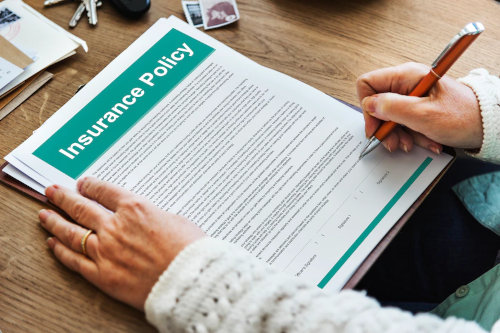If you operate a small company or drive for work, you’ll want to make sure you’re insured in the event of an accident. Personal vehicle insurance may not usually cover mishaps that occur while you are on the clock for your company. Commercial vehicle insurance covers individual owners and small businesses as well as large corporations and transportation organizations.

Source: Freepik
Commercial car insurance protects vehicles used in the course and scope of work. Any firm that owns or utilizes motor vehicles in the course of its operations needs commercial car insurance. Most company owners need liability and physical damage insurance, as well as industry-specific coverages.
Let’s analyze how to know when you need business vehicle insurance rather than personal auto insurance:
Considerations for Personal vs. Commercial Auto Insurance
Who is in charge of the vehicle?
Personal car insurance often covers individually owned automobiles used for personal purposes by persons or family members who reside with them. Employees or customers who use the car are often not covered. If you lease the automobile for business reasons, your standard auto insurance policy is unlikely to cover such instances.
If you have workers who regularly use the car for business purposes, you should insure them with commercial auto insurance. The car may thereafter be used by any employee who has a valid driver’s license.
How do you intend to use the vehicle?
You may believe your personal car insurance covers you, but it is not intended to cover the kind of risks you and your workers may encounter. In reality, most personal vehicle plans include an exclusion for commercial usage. Commercial car insurance may cover business-owned cars such as fleets of automobiles or trucks, as well as your own car and those you rent, lease, or borrow. It may also be beneficial when staff utilizes their own automobiles for professional purposes.
Commercial vehicle insurance is intended to cover damages if you or an employee is involved in an accident while driving for work. In most cases, commercial vehicle insurance is not included in your company owner’s policy. However, it is usually available separately, and most states require firms to carry a certain level of commercial auto insurance. As a result, be certain that your company is covered against traffic dangers.
Who is the vehicle’s owner?
If the vehicle is owned, leased, rented, or registered by a company, commercial car insurance is most certainly required. If you are the only proprietor and owner of the vehicle, you should consult with a professional insurance agent about how you use your vehicle and whether business insurance is a suitable fit for you.
What level of liability do you require?
Commercial vehicle insurance often has larger liability limits than standard auto insurance coverage. Higher liability limits are typically a smart idea for protecting your company.
What is the make and model of the vehicle?
Heavy-duty vehicles, such as semi-trucks and trailers, frequently need commercial insurance if they are utilized for commercial reasons. Since heavy trucks may do more damage than conventional automobiles, they usually need greater limitations and responsibility. This includes towing a trailer for commercial reasons.
Endnote
Making sure you have the proper insurance for all cars is critical, since the penalty for failing to do so may be severe. If you’re confused about which insurance is ideal for you or what your business requirements are, it’s advisable to consult with an adviser who can steer you in the right direction.